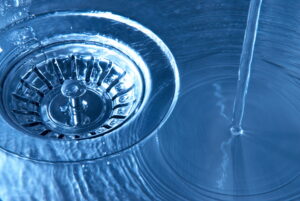Water is essential for life, but not all water is created equal. From pollutants to minerals, various contaminants can affect the quality and safety of the water we consume. That’s where water filtration comes in. In this post, we’ll explore five important facts about water filtration systems in Modesto, CA, including the different types of contaminants that water filters can remove and the numerous benefits of having clean water in your home.
1. Removal of Contaminants
Water filtration systems are designed to remove a wide range of contaminants from tap water, including:
- Sediment: Sediment such as sand, dirt, and rust particles can make water appear cloudy and affect its taste and odor.
- Chlorine: Chlorine is commonly added to municipal water supplies to disinfect the water, but it can impart a strong taste and odor.
- Heavy Metals: Heavy metals like lead, mercury, and arsenic can leach into water from plumbing systems and contaminate drinking water, posing serious health risks.
- Microorganisms: Bacteria, viruses, and other microorganisms can proliferate in untreated water sources and cause waterborne illnesses.
By removing these contaminants, water filtration systems ensure that the water you drink is clean, safe, and refreshing.
2. Different Types of Water Filters and Purifiers
There are various types of water filters or purifiers available on the market, each designed to target specific contaminants and meet different filtration or purification needs. Some common types of water treatment systems include:
- Activated Carbon Filters: These filters use activated carbon to adsorb contaminants and improve taste and odor.
- Reverse Osmosis Systems: Reverse osmosis systems employ a semipermeable membrane to remove impurities and produce purified drinking water.
- UV Water Purifiers: UV water purifiers use ultraviolet light to disinfect water and kill bacteria, viruses, and other microorganisms.
Choosing the right water filter or purifier depends on factors such as water quality, budget, and filtration requirements.
3. Health Benefits of Clean Water
Drinking clean, filtered water offers numerous health benefits, including:
- Improved Hydration: Clean water is essential for proper hydration, which is vital for overall health and well-being.
- Reduced Risk of Waterborne Illnesses: Removing contaminants from drinking water reduces the risk of waterborne illnesses caused by bacteria, viruses, and parasites.
- Protection Against Heavy Metals: Filtration systems can remove harmful heavy metals like lead and mercury, which can have detrimental effects on health, especially in children and pregnant women.
4. Environmental Benefits
In addition to promoting personal health, water filtration also has environmental benefits. By reducing the consumption of bottled water, which contributes to plastic waste and pollution, water filtration helps conserve natural resources and minimize environmental impact.
5. Cost-Effectiveness
Investing in a water filtration system can ultimately save you money in the long run. While there may be upfront costs associated with purchasing and installing a water filter, the ongoing expenses of buying bottled water or replacing appliances damaged by hard water can add up over time. By providing clean, filtered water directly from the tap, water filtration systems offer a cost-effective solution for ensuring safe and healthy drinking water for your household.
Schedule a water filtration appointment with the specialists at DeHart Plumbing, Heating, and Air Inc., or just join the Love Club and enjoy major plumbing benefits for years to come!


